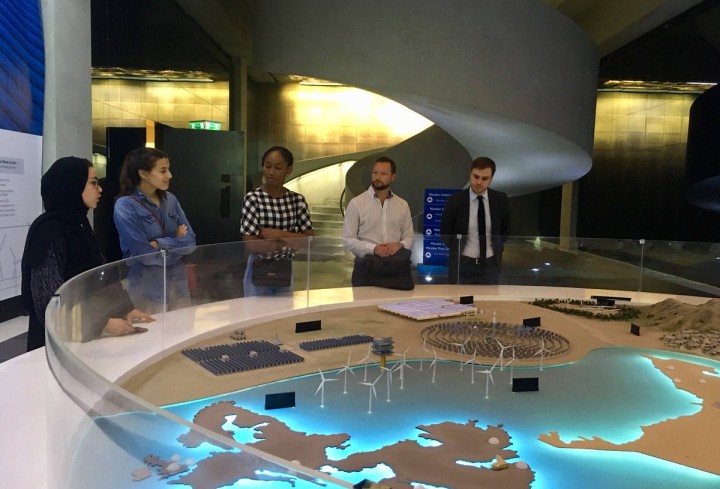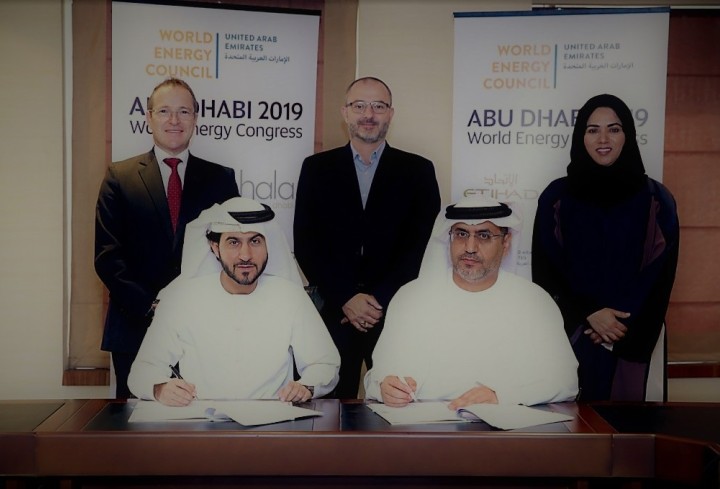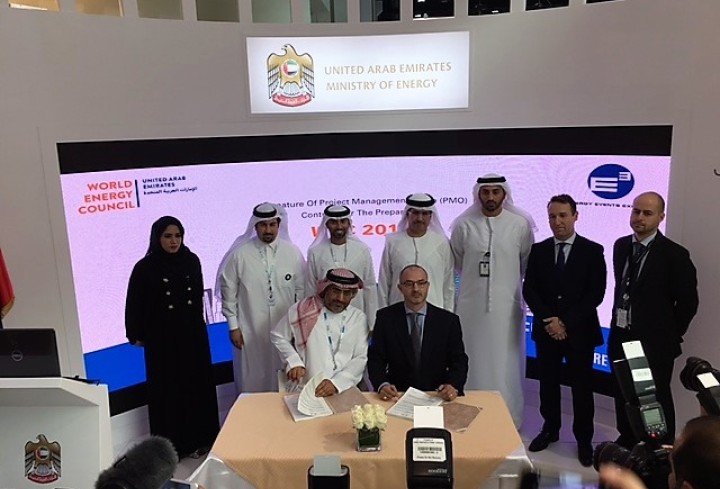The National Committee aims to promote sustainable energy development in the UAE, as a part of the World Energy Council’s energy vision. As a member of the World Energy Council network, the organisation is committed to representing the national perspective of the UAE within national, regional and global energy debates. The committee includes a variety of members to ensure that the diverse energy interests of the UAE are appropriately represented. Members of the committee are invited to attend high-level events, participate in energy-focused study groups, contribute to technical research and be a part of the global energy dialogue.
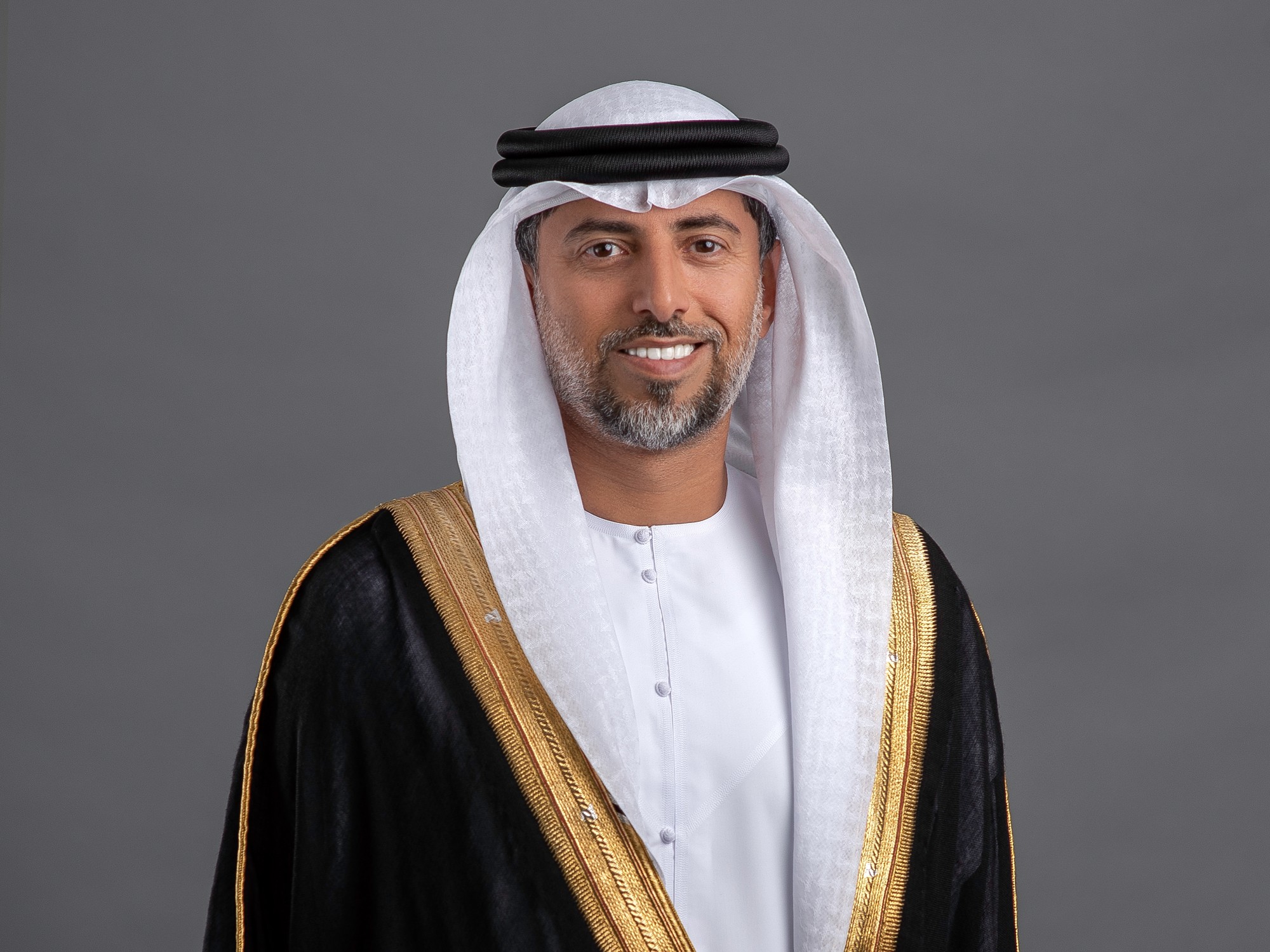
H.E. Suhail Mohamed Al Mazrouei has held the position of the Minister of Energy since March 2013 before the Ministry turning in the Ministerial Formation of 2017 into the Ministry of Energy and Industry. In July 2020, the Ministry grew even bigger when merging with the Ministry of Infrastructure Development, including the Sheikh Zayed Housing Programme, and the Federal Transport Authority Land & Maritime to become The Ministry of Energy and Infrastructure.
H.E. Al Mazrouei is Chairman of the Board of Directors of Etihad Water and Electricity, Chairman of the Board of Directors of Emirates General Petroleum Corporation, Member of the Board of Directors and of the Executive Committee of Abu Dhabi National Oil Company ADNOC and Mubadala Investment Company.
Vice-Chairman of the Board of Directors of: (Emirates Nuclear Energy Corporation, Nawah Energy Company, Barakah One Company), and Member of the Board of Directors of Dolphin Energy. H.E. Al Mazrouei has considerable experience in corporate administration in different sectors, including ship building, defense systems, oil and gas services sector and real estate development.
H.E. Suhail Al Mazrouei graduated in 1996 from the University of Tulsa in the United States of America with a bachelor’s degree in Petroleum Engineering. He was born in Dubai on July 1st, 1973. His hobbies include poetry, literature, and history
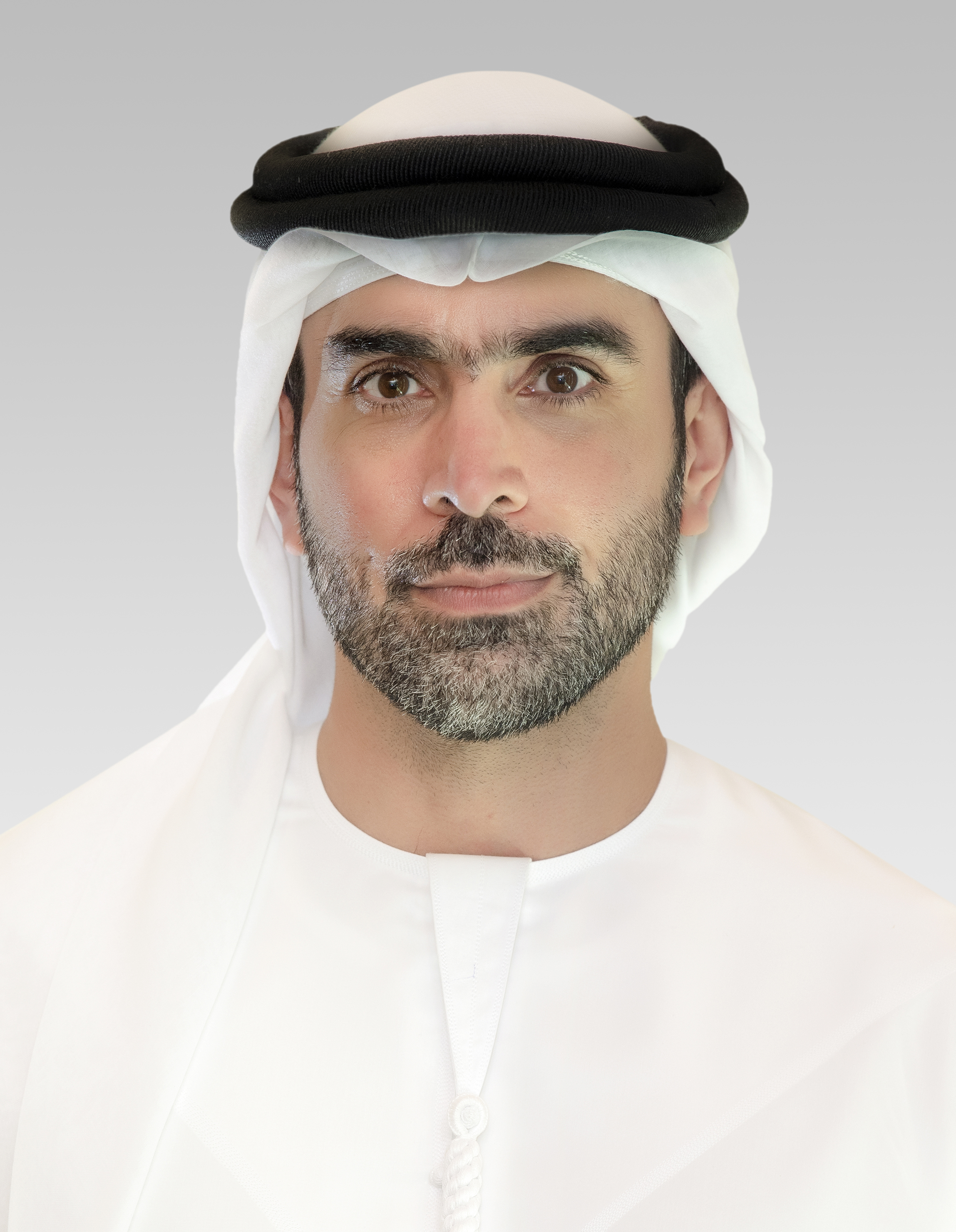
H.E. Sharif Salim Al-Olama is the Undersecretary for Energy and Petroleum
Affairs in the Ministry of Energy and Infrastructure.
Before joining the Ministry of Energy and Infrastructure on 5 May, 2020, H.E Sharif Salim Al-Olama has held several leading positions in ADNOC as the Head of the Executive Office; Senior Vice President for Planning and Performance, Senior Vice President of the Onshore Gas Assets, Vice President of Operations in the South East Fields, and Vice President of Engineering and projects.
HE Sharif Salim Al-Olama has extensive experience in Engineering and Project Management, Strategy and Planning, Performance Management as well as in the field of investment, particularly in Oil and Gas services.
.jpg)
His Excellency Ahmed Mohamed Al Kaabi is the Assistant Undersecretary for Petroleum, Gas, and Mineral Resources at the Ministry of Energy and Infrastructure.
Prior to this role, he held several positions at the Abu Dhabi National Oil Company (ADNOC), including the Manager of ADNOC Singapore Office, Sales Coordinator in Crude and Condensate Division, and Sales Coordinator in Middle Distillate Products.
In addition to his current responsibilities, His Excellency Al Kaabi is a board member in the Arab Petroleum Services Co. and the Arab Drilling and Workover Company. Previously, he served as a board member of the Arab Geophysical Exploration Services Company, chairman of the OPEC Auditing Committee, member of the International Pollution Compensation Fund in London, and the UAE's Governor for OPEC and UAE executive Member at GECF and IEF.
Throughout his career, His Excellency Al Kaabi has contributed to several key projects, including the auto-reconciliation, cash call, e-payment, and gasoline and diesel deregulation.
His Excellency Al Kaabi holds a master's degree in Petroleum Economics Management from the French
Institute of Petroleum (IFP) and a bachelor's degree in 2002 from Gonzaga University, USA.
Energy in United Arab Emirates
ENERGY ISSUES IN MOTION
Top Critical Uncertainty and Top Action Priority
The UAE's energy sector is progressing rapidly with significant investments in clean energy and a diversified energy mix. The country continues to expand its clean energy capabilities, reinforcing its commitment to a sustainable and secure energy future. The nation’s proactive approach to enhancing energy security is evident in its strategic investments in renewable energy, nuclear power, and energy storage solutions.
The top action priority for the UAE is to accelerate the expansion of its clean energy capacity. These projects reflect the country’s forward-thinking energy strategy and its commitment to a low-carbon future. The UAE is not only advancing its transition to clean energy but is also setting a global benchmark for energy sustainability. In alignment with the UAE Energy Strategy 2050 and the Net Zero by 2050 target, the country is at the forefront of energy transformation. These pioneering projects are instrumental in shaping the UAE’s energy future, ensuring a secure, reliable, and sustainable energy supply, while also contributing to global climate goals.
Changes in the Energy Landscape
Since the last iteration, the UAE has made remarkable progress in integrating renewable energy and nuclear power, alongside developing robust policy frameworks that support its energy transition. The UAE’s energy mix continues to evolve with the launch of large-scale renewable projects, including the Mohammed Bin Rashid Al Maktoum Solar Park, the Al Dhafra PV Plant, the Noor Abu Dhabi Solar Plant, the UAE wind program, and the Barakah Nuclear Power Plant, which will supply 25% of the UAE’s electricity. These projects are critical in reducing reliance on fossil fuels and contributing to the country’s clean energy transition. The UAE’s energy strategy, which targets 30% of its energy mix to come from clean sources by 2030, reflects its dedication to advancing sustainable energy solutions and diversifying its energy supply.
The growing focus on energy storage, grid optimization, and energy security has become a central priority on both national and global energy agendas. These elements are not only crucial for the UAE’s domestic energy transformation but are also vital for ensuring the country’s leadership in the global energy landscape. By advancing these initiatives, the UAE is positioning itself as a strategic leader in shaping the future of global energy systems and driving forward sustainable energy solutions worldwide.
FROM BLIND SPOTS TO BRIGHT SPOTS
Blind Spots
While the UAE has made significant strides in renewable energy integration, there are areas of improvement, particularly in energy storage. As the country continues to ramp up its renewable energy generation, balancing the intermittent nature of solar and wind power becomes more crucial. The deployment of energy storage technologies remains central to addressing this challenge and ensuring long-term grid stability. Notable achievements include Abu Dhabi’s 648MWh sodium-sulfur battery system, DEWA’s 7.2MWh pilot project, and the Hatta pumped-storage hydroelectric project. However, as renewable generation continues to grow rapidly, further scaling up energy storage solutions will be necessary to provide reliable and consistent power across the grid, especially as solar energy plays a larger role in the UAE’s energy mix.
The future of energy storage technologies holds great promise for the UAE’s energy security, and further investments in grid-scale storage solutions will ensure the reliability and consistency of renewable energy across the grid. Advancements in battery technologies, such as solid-state batteries and flow batteries, along with emerging storage technologies, will be vital in overcoming current storage limitations. Additionally, expanding the use of demand response programs will further optimize grid operations, improve energy efficiency, and manage peak loads more effectively.
Bright Spots
The UAE has made remarkable progress in its energy transition, achieving significant milestones in solar and nuclear power integration. The country is home to the world’s three largest single-site solar parks. These projects set a global benchmark for solar energy deployment and are integral to the UAE’s strategy to achieve a clean and sustainable energy future.
Additionally, the Barakah Nuclear Power Plant, which is set to provide up to 25% of UAE’s current electricity consumption, is a major step in reducing reliance on fossil fuels and supporting the country’s low-carbon economy. This initiative is a cornerstone of the UAE’s energy policy, as nuclear power plays a vital role in providing a consistent and reliable energy source that complements renewable energy generation.
The UAE has also integrated solar energy into one of the world’s largest Reverse Osmosis (RO) plants, the Al Taweelah IWP. A 69 MW solar PV system provides 30% of the plant’s energy, marking a key milestone in green water desalination. Similarly, the Mirfa 2 RO Independent Water Project, which will desalinate up to 120 million imperial gallons of seawater per day, exemplifies the UAE’s leadership in sustainable energy solutions for both energy and water security.
Waste-to-Energy projects are also scaling. The Sharjah WtE Plant, the first of its kind in the region, processes 300,000 tonnes of waste annually, powering 28,000 homes. The Dubai Waste Management Centre will be among the world’s largest, processing 1.9 million tonnes per year and generating 200 MW.
Mubadala Energy has significantly advanced sustainability by has made substantial progress in advancing decarbonization across its global operations. Over 70% of its portfolio is now focused on natural gas, reinforcing its role as a key transition fuel. The company achieved a 66% reduction in Scope 1 and 2 GHG emissions, cut energy consumption by 46%, and reduced flared gas by 62% in its operated assets. Sustainability efforts also include a 26% decrease in fuel emissions through biofuel use and a 23% drop in emissions during well-testing due to the installation of advanced fuel treatment systems. The Shams Dubai program, which encourages solar panel installations across homes and businesses, has a 750 MW capacity and is contributing to energy security while engaging the public in the energy transition.
Dubai's production of green hydrogen generates over 1 GWh of energy and reduces about 450 tonnes of CO2 emissions and produced 90 tonnes of green hydrogen since it was launched in May 2021.
The UAE recognizes the opportunity to further enhance its energy security by scaling up investments in battery storage, which will stabilize the power grid and improve the reliability of renewable energy sources. Moreover, expanding dual-use land models for solar and wind farms, such as rooftop and floating solar, will help mitigate land demand while ensuring grid stability and supporting the UAE’s clean energy goals.
ADDRESSING CRITICAL UNCERTAINTIES TO BALANCE THE WORLD ENERGY TRILEMMA
Main Uncertainties and Priority Issues Impacting the Trilemma
The UAE’s energy transition is shaped by a series of key uncertainties, particularly relating to energy security, energy equity, and environmental sustainability. These uncertainties need to be addressed in order to achieve a successful and sustainable energy future.
-
Energy Security: While the diversification of the UAE’s energy mix, including the development of solar, nuclear, and wind energy, has significantly improved energy security, uncertainties remain due to fluctuations in global oil and gas prices. The UAE is addressing these challenges by making strategic investments in alternative energy sources and leveraging innovative technologies to improve energy storage, grid integration, and system resilience.
-
Energy Equity: The UAE is committed to ensuring that energy access is available to all citizens. Policies and programs designed to make the transition to clean energy affordable and accessible are central to the country’s approach. The National Water and Energy Demand Management Programme 2050 and local DSM programs play critical roles in improving energy efficiency and ensuring equitable access to energy.
-
Environmental Sustainability: The UAE is actively working towards achieving its Net Zero target by 2050, focusing on innovative technologies and policies to integrate renewable energy and reduce carbon emissions across sectors like transportation and industry. The country is substantially increasing its clean energy capacity through investments in projects like the Barakah Nuclear Power Plant, renewable energy initiatives, and carbon capture technologies. While integrating renewable energy into the grid presents challenges due to the intermittent nature of solar and wind energy, the UAE is addressing these challenges through advanced storage solutions, smart grid technologies, and forward-thinking policies that ensure a sustainable and resilient energy system.
CONCLUSION
The UAE’s energy transition is a dynamic and transformative journey, positioning the country as a global leader in sustainable energy. The nation has made extraordinary strides in securing energy, ensuring equitable access, and significantly reducing its environmental impact. By embracing innovative technologies, strategic policy frameworks, and collaborative partnerships, the UAE is not only achieving its ambitious energy objectives but also shaping the global energy future.
The UAE is proactively addressing challenges such as market volatility, storage limitations, and renewable energy integration. Through its unwavering commitment to pioneering technologies, strategic policy alignment, and cross-sector collaboration, the UAE is set to maintain its leadership in energy transition, ensuring global energy supply security while advancing sustainable energy solutions for a cleaner and brighter future.
Acknowledgements
UAE Member Committee
Downloads
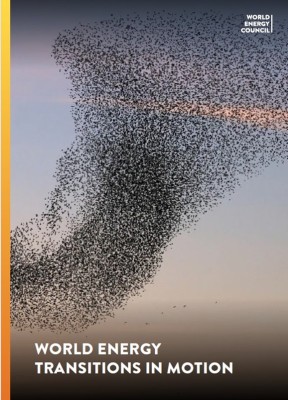
UAE Energy Issues Monitor 2025 Country Commentary
Download PDF
World Energy Issues Monitor 2025
Download PDF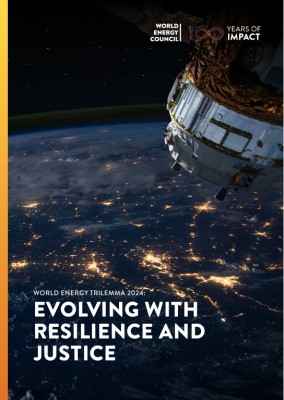
UAE World Energy Trilemma Profile 2024
Download PDF





